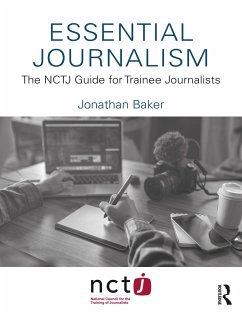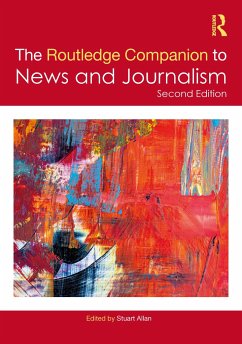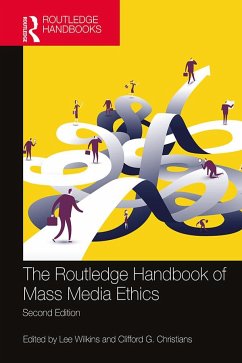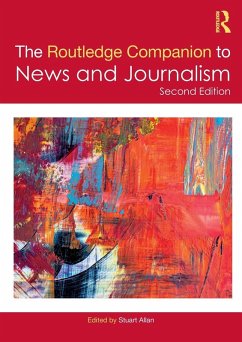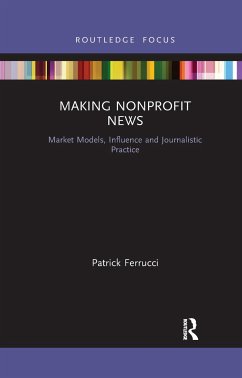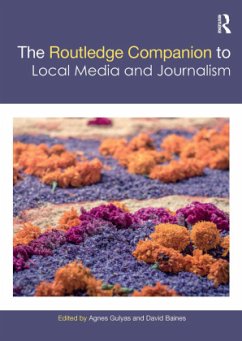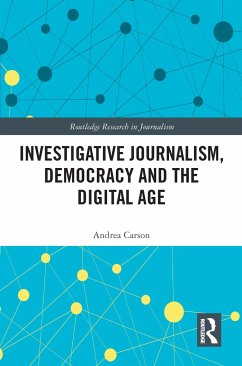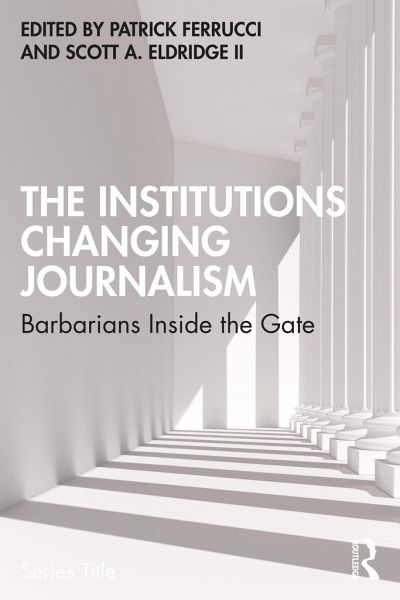
The Institutions Changing Journalism
Barbarians Inside the Gate
Herausgegeben: Ferrucci, Patrick; Eldridge II, Scott A.
Versandkostenfrei!
Versandfertig in 6-10 Tagen
41,99 €
inkl. MwSt.
Weitere Ausgaben:

PAYBACK Punkte
21 °P sammeln!
Bringing together original contributions from a worldwide group of scholars, this book critically explores the changing role and influence of institutions in the production of news.Drawing from a diverse set of disciplinary and theoretical backgrounds, research paradigms and perspectives, and methodologies, each chapter explores different institutions currently impacting journalism, including government bodies, businesses, technological platforms, and civic organisations. Together they outline how cracks in the autonomy of the journalism industry have allowed for other types of organizations t...
Bringing together original contributions from a worldwide group of scholars, this book critically explores the changing role and influence of institutions in the production of news.
Drawing from a diverse set of disciplinary and theoretical backgrounds, research paradigms and perspectives, and methodologies, each chapter explores different institutions currently impacting journalism, including government bodies, businesses, technological platforms, and civic organisations. Together they outline how cracks in the autonomy of the journalism industry have allowed for other types of organizations to exert influence over the manner in which journalism is produced, funded, experienced and even conceptualized. Ultimately, this collective work argues for increased research on the impact of outside influences on journalism, while providing a roadmap for future research within journalism studies.
The Institutions Changing Journalism is an invaluable contribution to the field of journalism, media, and communication studies, and will be of interest to scholars and practitioners alike who want to stay up to date with fundamental institutional changes facing in the industry.
Drawing from a diverse set of disciplinary and theoretical backgrounds, research paradigms and perspectives, and methodologies, each chapter explores different institutions currently impacting journalism, including government bodies, businesses, technological platforms, and civic organisations. Together they outline how cracks in the autonomy of the journalism industry have allowed for other types of organizations to exert influence over the manner in which journalism is produced, funded, experienced and even conceptualized. Ultimately, this collective work argues for increased research on the impact of outside influences on journalism, while providing a roadmap for future research within journalism studies.
The Institutions Changing Journalism is an invaluable contribution to the field of journalism, media, and communication studies, and will be of interest to scholars and practitioners alike who want to stay up to date with fundamental institutional changes facing in the industry.







